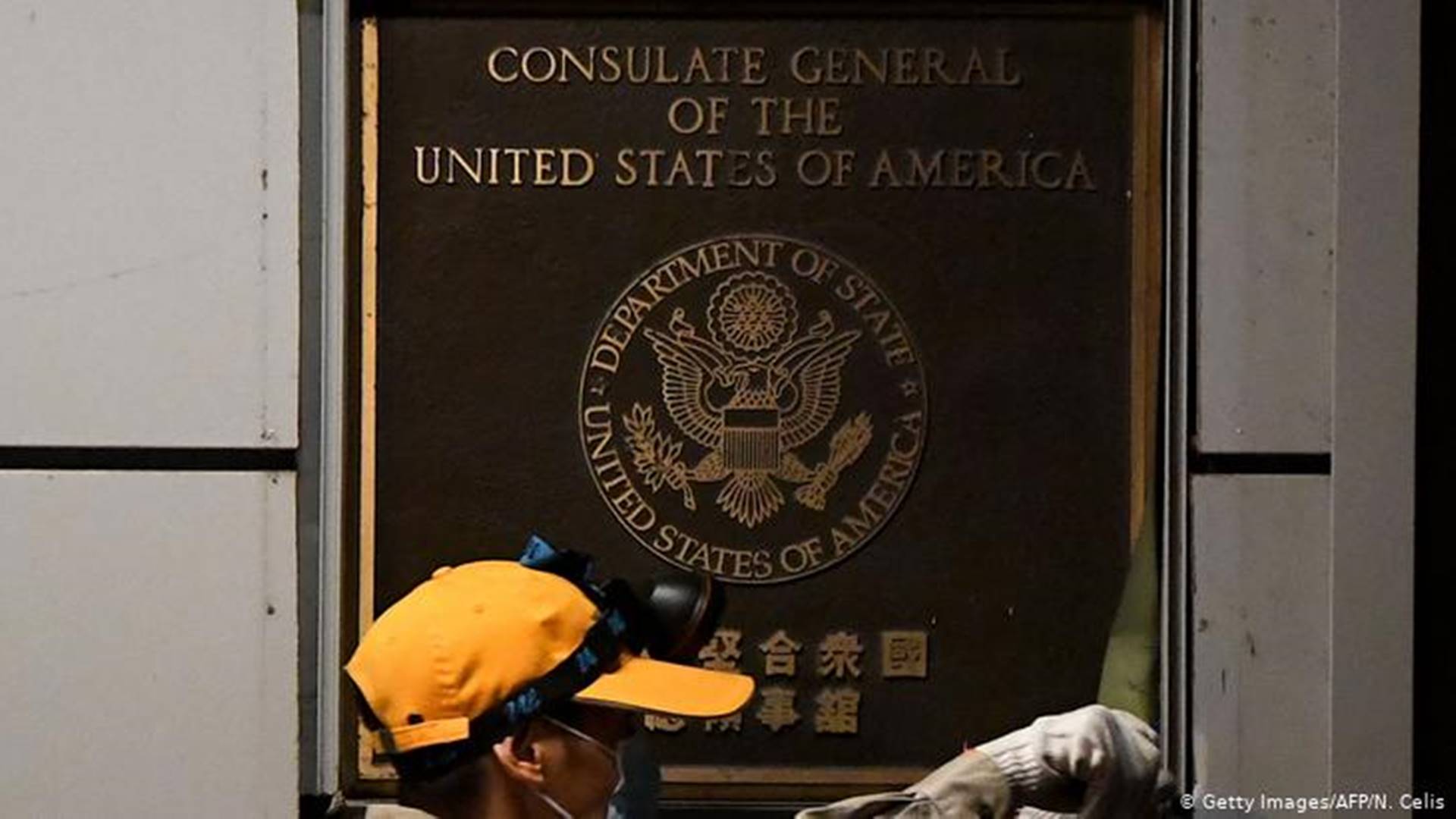Chinese authorities have taken control of the former US Consulate in the southwestern Chinese city of Chengdu. The move comes amid rising tensions between the two countries over a number of issues.
Chinese authorities on Monday entered the former US Consulate in Chengdu after it was ordered to be shut in retaliation for the US closing the Chinese Consulate in Houston last week.
China’s Foreign Ministry spoke of “competent authorities” having entered the premises after it was vacated by US diplomats in the morning.
Read more: No end in sight to the US-China confrontation
The closings of the missions come as tensions between the two global powers continue to rise, fueled by numerous issues, including trade, responsibility for the coronavirus pandemic and moves by Beijing to stifle pro-democracy efforts in Hong Kong.
“We entered from the main entrance and took over fairly and honorably,” a statement on the Weibo online platform said. Beijing had complained that US officials used illegitimate force to enter the Houston consulate, prising open the back door after failing to get in by three other entrances.
A large crowd in Chengdu
DW’s Mathias Bölinger, who is at the US Consulate in Chengdu, said reactions among locals to the closure of the mission were mixed, with some happy to see the Americans go while others were unhappy that bilateral ties had so deteriorated. “Many people have come to take a look and a selfie with victorious poses,” Bölinger said. “It is a historic event in their town and they wanted to witness it.”
The scene outside the US consulate in Chengdu a few minutes ago. Several blocks around the consulate are cordoned off. But outside that zone still many people watching and filming. At some point police were pushing them back to clear the road. But overall quite relaxed. pic.twitter.com/qwc4tfask1
— Mathias Boelinger (@mare_porter) July 27, 2020
Bölinger said the Houston and Chengdu missions were both of equivalent importance to the respective countries and that China had thus responded in reciprocal manner to the US move, which he said had taken Beijing by surprise.
The US ordered the Chinese mission in Houston to close on charges of espionage and intellectual property theft. China echoed such accusations when ordering the US Consulate to shut, with a Foreign Ministry spokesperson saying that staff there “were engaged in activities outside of their capacity, interfered in China’s internal affairs and endangered China’s security and interests.”
The flag is down. Emblem covered. Guards are posted in front of the former consulate, but public is now allowed to pass on the other side of the street. Explicit displays of patriotism not allowed. One man with flags and a poster was quickly led away by police. pic.twitter.com/uCVpcVsWOE
— Mathias Boelinger (@mare_porter) July 27, 2020
The consulate plate – already hidden behind a canvas – is covered with panels but for now not completely dismantled. pic.twitter.com/Tav5Th1Vnb
— Mathias Boelinger (@mare_porter) July 27, 2020
Role in Tibet relations
The Consulate covered several minority regions, such as Tibet. US State Department said it had “stood at the center of our relations with the people in Western China, including Tibet, for 35 years.” It expressed disappointment at China’s decision but said the US would continue with its “outreach to the people in this important region through our other posts in China.”
Each side now has four consulates and one embassy in the respective other country.
China has described US allegations that its Houston consulate hosted Chinese spies who were trying to steal medical and industrial data as “malicious slander.”
DW / Balkantimes.press
Napomena o autorskim pravima: Dozvoljeno preuzimanje sadržaja isključivo uz navođenje linka prema stranici našeg portala sa koje je sadržaj preuzet. Stavovi izraženi u ovom tekstu autorovi su i ne odražavaju nužno uredničku politiku The Balkantimes Press.
Copyright Notice: It is allowed to download the content only by providing a link to the page of our portal from which the content was downloaded. The views expressed in this text are those of the authors and do not necessarily reflect the editorial policies of The Balkantimes Press.

